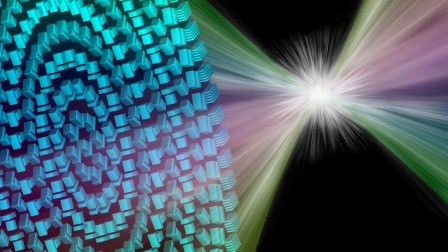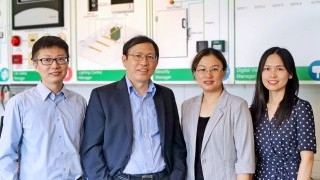Research selected for “Top 10 Science Advances in China of 2019” and included in 2020 National College Entrance Examination
A question based on an article written by Dr Huang Bolong, Assistant Professor of PolyU’s Department of Applied Biology and Chemical Technology, in collaboration with Professor Yan Chunhua and Professor Zhou Huanping from Peking University, was included in the examination paper for comprehensive science in the 2020 National College Entrance Examination of China. The article proposes an innovative solution for designing efficient and stable solar cells.

(From left) Dr Huang Bolong, Professor Yan Chunhua, and Professor Zhou Huanping
The article submitted by Dr Huang’s joint research team was published in Science magazine in 2019. By using theoretical calculations, it explains how rare-earth ion doping could be used to stabilise perovskite solar cells. “Among different types of solar cells, perovskite solar cells have the highest solar light conversion efficiency. However, defects, such as zero-valence lead and iodine, often occur in perovskite solar cells due to environmental factors, which affect their performance,” Dr Huang explained.
The research found that introducing rare-earth ions could eliminate the zero-valence defects through the redox cycle, stabilizing the long-term functioning of perovskite solar cells, and enhancing their efficiency.
This research work was also selected as one of the “Top 10 Science Advances in China of 2019” by the Ministry of Science and Technology of China.





